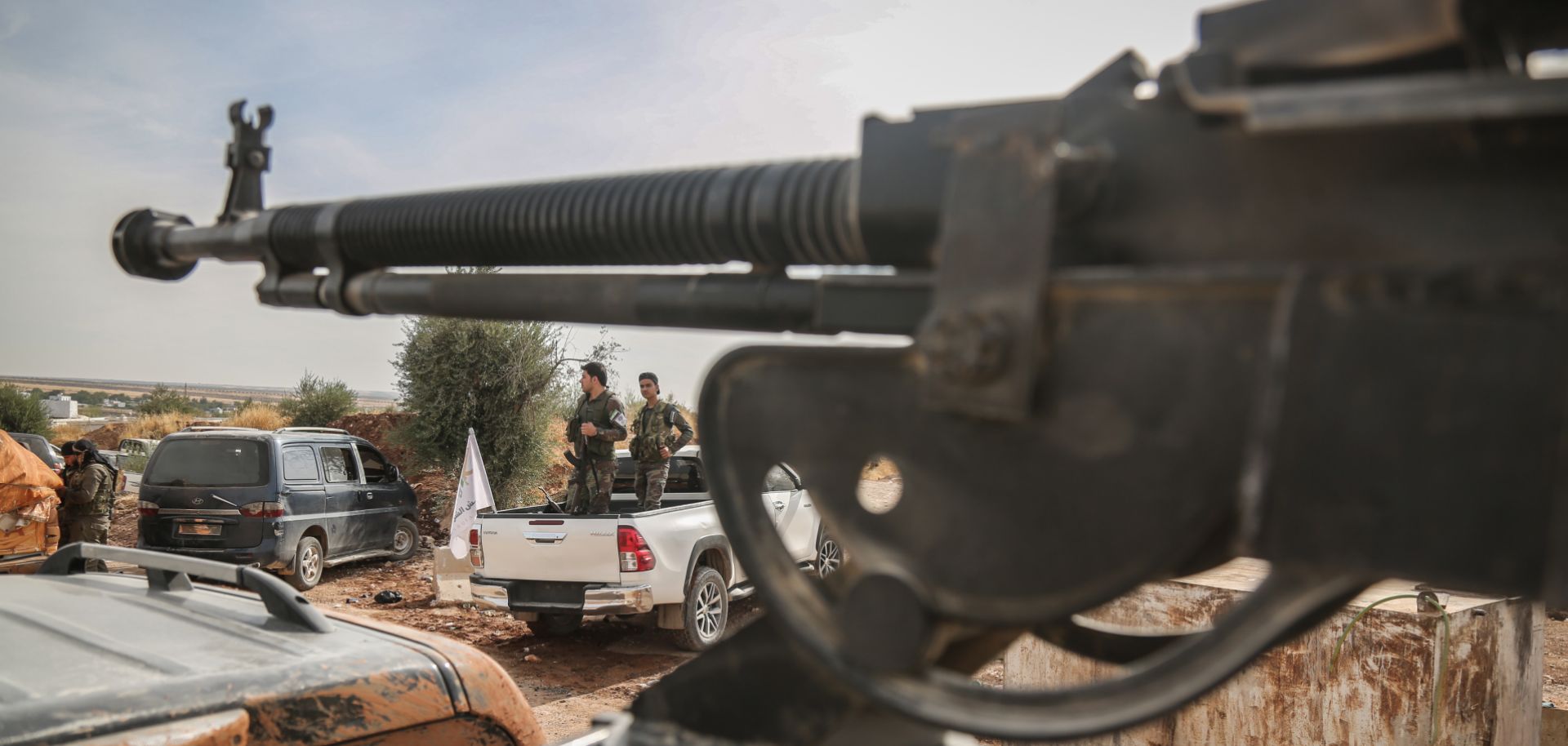ASSESSMENTS
In Syria, Turkey Will Pay the Price for an Imperfect Buffer
Oct 14, 2019 | 10:00 GMT

Fighters with the Turkish-backed Syrian National Army gather near the Turkish border in northeastern Syria on Oct. 11, 2019. Turkey has long sought to establish a buffer zone in Syria to protect itself from the effects of that country's civil war.
(ANAS ALKHARBOUTLI/picture alliance via Getty Images)
Highlights
- Turkey will expand its buffer zone along its border with Syria to buttress it from the effects of the Syrian civil war, but the expansion will bring repercussions from Syria, Russia, Iran, the United States and Europe.
- Turkey will endure the risks of U.S. and European sanctions to gain as much as it can from a new, northeastern Syrian buffer zone, but it will not want a military clash with Syrian, Russian or Iranian forces that enter the northeast.
- Turkey's expanded buffer zone will also be subject to insurgent attacks by the Kurdish-led Syrian Democratic Forces or the Islamic State.
Proceed to sign up
Register NowAlready have an account?
Sign In